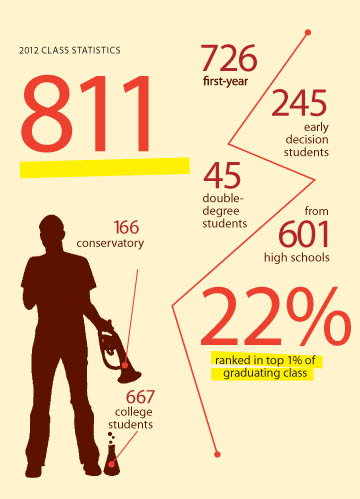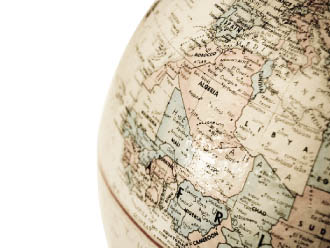The Class of 2016 Applies Itself

In second grade at my Jewish day school, I learned to say the Shma before I went to bed. I wasn't yet fluent in Hebrew, so I didn't really understand what I was saying. I decided that just to make sure I covered everything, I would add my own English prayers to my nightly routine. By prayers, I really mean requests. That is why they all started with please. I was dependent. I had an unwavering faith in a higher power, and I was somewhat unsure of the future. G - d had forever been a constant in my life, a given that fostered a sense of entitlement. My spiritual comfort perpetuated a lack of appreciation; I routinely asked for more.
Slowly but surely, I weaned myself from this nightly routine over my years spent at a public high school. I was no longer reminded daily of my religion. The onus rested on me to preserve my relationship with G - d, and to define how I would choose to do this. Now when I do remember to say anything at night, it's not please, but thank you.
Sarah Goldstone
Fresh Meadows, NY

How does a border create a country? I have been asking this question since I was 8 years old, when I got my favorite Christmas gift ever — a globe. It was a beautiful thing — silvery gray-blue and so perfectly spherical, as the Earth must appear from deep space. It fascinated me immediately. As I studied it, I realized at age 8 how vast the world was, with so many different countries, oceans, jungles, deserts, mountains, and plains. … As the months went by, I continued to study my globe more intently; different nations began to interest me. How had these borders come to be? How long had they been like that? My love of history and geography began with that globe — which I still have, along with a few others.
Another gift — The Oxford Atlas of World History — which I received for my 10th birthday, began to provide answers to many questions my globe raised. It immediately became my favorite pastime to study how the changing borders between countries, from those of Ancient Greece to the boundary settlements of World War I and II, had shaped the paths of so many people's lives. The demarcations changed when empires rose and fell, tribes settled new lands, and wars were won and lost. The history of political boundaries was the history of power, control, and the course of humanity. By studying them, I was also able to grasp that a nation is not only a political entity, but also a collection of peoples, and the borders of any nation only demonstrate where it has had its influence, culture, and traditions. The Oxford Atlas of World History suggested that much human struggle was about the need (or greed) for land and resources, but was often justified by abstract principles of religion, philosophy, nationalism, historical entitlement, or destiny. I have already worn out two copies of this wonderful book and am now on my third.
Sean Para
New York, NY
At night, when he believes us all to be sleeping, he will begin: low and soundless, the strange noise, winding and ripping through the softness of the house — suddenly high like buzzing — suddenly rumbling like an earthquake — he is singing Chinese opera.
Or in the car, when we are talking about what will come — me leaving for college, how he left when he was 16 with nothing but spare change in his sweaty palms — or how every morning as a child he would walk the shoddy dirt paths winding through the yellow of wheat fields — then stop and wonder about the huge expanse of blue sky that melted into a horizon so far away for him. Where? he asked. Where is the end of it?
He is the man who looked at the fear spiking his blood in that endless overpass of blue sky and still said, "I will chase the end." Who packed up his home, family, in his pocket to fly across an ocean. Who took me as a child to see the burning, the desperate explosion of autumn, the crimson and the sunset oranges and the crumbling brown of earth of October and told me, pointing, this is beautiful. Who took me camping at night, away from the blinding scorch of suburban lights, into the dampness and darkness and the smell of water of woodland to look at constellations. There. He would say, eyes trailing the blinking lights like an ocean, There, is what you want.
He is the man who looked at my 7-year-old doodles and clapped his hands, he is the man who looked at my paintings and framed them around the house, he is the man who sat at the table with the pencil hard in his hands showing me the beauty of intellect, he is the man who smiled and laughed so hard that I grew up to the sound of happiness — until I smiled and laughed as easily as he did, he is the man who stood there in the haze of warm kitchen lights, listening to me tell him that I want to write, I want to spend the rest of my life writing, and looked at me with the same stony look of the cruel sky, and nodded.
He is the man who threw his arms out to what we cannot hold in our hands, the shades of color in this world, the waning of our lives, the necessity of leaving and said, "You must find passion, if anything. You must live with that."
Danyang Fang
Naperville, ILL

Want to Respond?
Send us a letter-to-the-editor or leave a comment below. The comments section is to encourage lively discourse. Feel free to be spirited, but don't be abusive. The Oberlin Alumni Magazine reserves the right to delete posts it deems inappropriate.